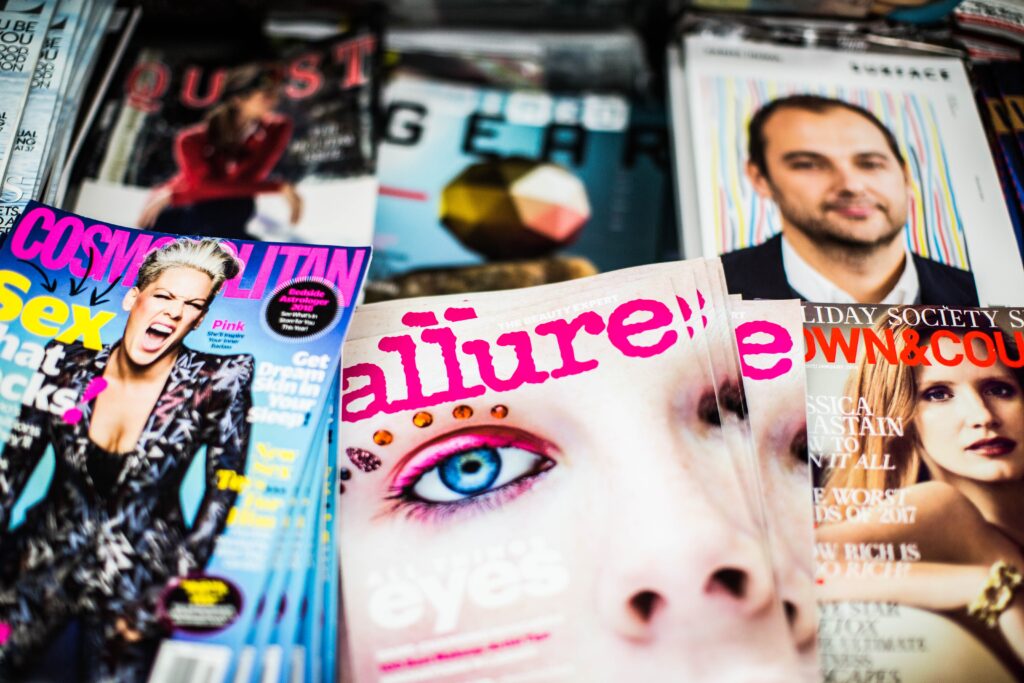If you want to earn a living as a professional writer, you’ll need to expand out into the world of publications. The large publications and editors may scare novice authors, but they are no different from any other publisher. Aside from the fact that they are published on a monthly basis, the majority of magazines are searching for authors who are well-versed in their fields and have a strong interest in the topic matter. If you want to write for magazines or any other publication, all you have to do is write about what you know. As your career progresses, you may wish to experiment with research-intensive topics.
Finding a few publications that cover your favorite sport, activity, or topic is the greatest way to get started in writing for magazines. Consider looking at the contents of a few copies. The names of the magazine’s editors, as well as the publication’s location, website, and maybe an e-mail address, are often shown on a separate tab. Enquire about writing for their magazine by contacting the editors directly. If requested, provide samples of your work and ideas for a piece you’d want to write. You don’t require previous publications, but it helps to show the editor that other media, including local newspapers, have published your work.
Be Authentic
Always be yourself while chatting to magazine editors. In other words, editors can tell when you’re just trying to sound a specific way. Despite the intimidating nature of magazines, editors are just like you and me. Speak to them as though they are an old friend by being approachable and kind. The more people like who you are, the more likely they are to enjoy your work. Magazine readers are just like you, and they want to read something written by someone who is sincere and authentic.
Don’t give up if you can’t get the editor to give you a chance in the field of magazine journalism. Work your way up from tiny publications to the big ones. Write numerous free articles to assist you get your foot in the door in certain circumstances. As a result, you’ll have examples of your prior work in print and a foundation in the craft of writing.
Rejection is a part of the game
When it comes to writing for magazines, the last thing to keep in mind is how to cope with rejection. Some editors are as friendly as your next-door neighbor, while others aren’t. Editors come in all shapes and sizes. There are excellent and awful jobs and bosses in every vocation, as is the case with every other profession as well. It’s important to learn to take rejection, even if it’s done in a polite way, and then go on. There is a lot of rivalry in the magazine industry, and being recognized requires time and effort. Embrace the criticism that comes your way and use it to help you become a better writer in the long run. Don’t be hesitant to speak out for what you believe in. Be proud of what you’ve accomplished thus far, but know that there’s always opportunity for development.
Magazine Writing Tips & Tricks

Writing for magazines now requires a new set of skills, especially given the quick evolution of the industry due to advances in digital technologies. The vast majority of today’s periodicals are now read online, either via a computer browser or an app like Apple News. Even some of the world’s most popular weekly publications now come out once or twice a year. Fresh online magazines, on the other hand, are continuously appearing, and many of them are actively looking for new authors with exciting story ideas to submit. Here are a few pointers for breaking into the magazine writing profession.
Pitch ideas to the right people.
The majority of freelance writers are required to submit a query letter before they are assigned a project. When approaching editors, be cautious. The Cincinnati Bengals run defense won’t be featured in Vogue, so don’t bother sending Anna Wintour a query letter about the subject matter. It doesn’t matter if your proposal is rejected; you’ve already formed a connection with the magazine’s employees and you want to make a good first impression. When approaching a publisher with an article idea, be careful to follow the publication’s submission requirements.
Become an expert in your field.
In today’s media landscape, expertise is highly prized. When he started writing for ESPN: The Magazine, ESPN’s Brian Windhorst specialized on basketball while being well-versed in other major sports. The promotion he received as a result of it is something he is really proud of (even though the magazine itself no longer exists). Lean into your expertise in an area of expertise, such as medicine, music, or mobile computing. When pitching tales, it’s probable that the finest ones will come from your own experience or expertise. As a beginning writer, narrowing your focus may help you get traction.
Don’t be afraid to go further than you believe is necessary.
It’s usually a good idea to have more sources, quotations, and figures than you can utilize in your piece. Magazine writers often find that their narrative notes are lengthier than their initial draft. As soon as you get a wonderful idea for an article, you may feel compelled to write it right away. Just make sure that you have a ton of information to work with before you begin.
It’s important to think about the magazine’s intended readership.
Readers are the magazine’s most essential asset. Magazine writing may reward you with a long and fruitful career if you learn how to communicate effectively with your target audience. It is not acceptable to use too technical language when writing pieces for popular publications like Wired or Discover, where the goal is to inform rather than educate the reader. Writing for trade periodicals in the telescope business, on the other hand, necessitates the liberal use of technical details. It’s a demand from your audience.
Keep note of any magazine staff changes.
It’s common for editors to go from one publication to another. These individuals are much more important to you than the firm they work for. The managing editor at Pitchfork is a lot greater resource than anybody at Rolling Stone, so even if your piece sounds wonderful for their publication, you’ll have a much higher chance of being published there. To find out who works where look at the magazine’s masthead and author bylines. LinkedIn and other online platforms may also supply this data.
Adaptability is key.
A journalist’s ability to adapt is one of the most important writing abilities he or she may possess. In the midst of a well-planned strategy, the writing process may take journalists in unexpected ways. The topic of your intended 1,000-word piece may need 10,000 words. Alternatively, you may discover that a feature you believed would be lengthy really isn’t that long at all. Even if everything goes according to plan, writing is still a lot of labor. Take a more open attitude if your tale calls for a different approach than what you had anticipated. It will make the editing process more enjoyable.
